Review by Brian Montgomery
Theatrical: Compton-Cameo Films
Blu-ray: BFI Video
Disc:
Region: FREE!
(as verified by the
Momitsu region FREE Blu-ray player)
Runtime: 1:16:43.932
Disc Size: 31,902,325,256 bytes
Feature Size: 18,676,413,440 bytes
Video Bitrate: 18.10 Mbps
Chapters: 12
Case: Standard Blu-ray case
Release date: January 25th, 2010
Video:
Aspect ratio: 1.33:1 matted to 1.78
Resolution: 1080p / 23.976 fps
Video codec: MPEG-4 AVC Video
Audio:
LPCM Audio English 2304 kbps 2.0 / 48 kHz / 2304 kbps /
24-bit
Subtitles:
English, None
Extras:
• The People at No.19: an intense
and effective melodrama which
explores the themes of adultery,
sexual hygiene and pregnancy from
the perspective of an earlier era
(18:14)
• No Place to Hide: a snapshot of
the 'Ban the Bomb' march from
Aldermaston to London (9:20)
• A Sunday in September: a
compelling documentary, from the
director of Black Beauty, about a
nuclear disarmament demonstration in
London with Vanessa Redgrave, Doris
Lessing and John Osbourne (28:00)
• Robert Hartford-Davis interview:
That Kind of Girl's producer
discusses his film career and
production methods (14:00)
• Extensive illustrated booklet
featuring essays from novelist Cathi
Unsworth and director Gerry O'Hara
The Film:
In 1960s London, a beautiful
continental au pair finds herself
wrestling with the affections of an
earnest peace-protester, a dashing
young toff and a roguish older man.
But fun and freedom turn to shame
and despair when she finds that her
naivety has put her lovers, and
their partners - including the
well-meaning Janet (played by Big
Zapper's Linda Marlowe, in her first
role) - at risk. Stylishly shot in
crisp black and white, and set
against a backdrop of smoky jazz
clubs, 'Ban the Bomb' marches, and
evocative London locations, this
finely tuned cautionary tale was the
directorial debut of Gerry O'Hara
(All the Right Noises, The Brute),
and is presented in a new High
Definition transfer.
Excerpt of review from BFI located
HERE
Image:
NOTE:
The below
Blu-ray
captures were taken directly from the
Blu-ray
disc.
The BFI's "That Kind of Girl" sports
an all around excellent picture. The
MPEG-4 AVC Video/1080p transfer does
an outstanding job bringing out the
subtle nuance with the blacks
and grays. We get a good deal more
depth with the gray scale then we
likely would with the standard
edition. While the image can appear
ever so slightly soft at times, but
for the most part, the level of
clarity is more than acceptable. The
close ups in particular reveal a
level of clarity that can only be
found in 1080p. Although the film
has been restored, there are still
some very minor instances of damage
and every once in a while, a
vertical line running down the
center of the screen. The grain
level is quite nice but for whatever
reason, tends to be a bit
exaggerated when paused. Indeed, the
image captures below do not do the
film justice. In motion, it's even
better than the captures would
indicate. Overall, its a really
lovely release.
CLICK EACH
BLU-RAY
CAPTURE TO SEE ALL IMAGES IN FULL 1920X1080 RESOLUTION
Audio & Music:
Like most of their Blu-ray releases as of late, the BFI has
chosen to use a Linear PCM 2.0 audio
master. For a film that has as much
of the early '60s mod sounds as this
one does, the songs sound quite good
in this lossless offering. The dialogue
is always crisp and clear and I
found no noticeable instances
unwanted background noise. The
subtitles on the disc are always
clear and easy to follow.
Extras:
Included in the disc is a plethora
of extras, all in HD. While the
short films are only peripherally
related to the main feature, they
are all interesting in their own
way. On the discm we get three short
films, the first of which, "The
People at No.19", was first found in
the BFI's "The Joy of Sex
Education". The film is an 18 minute
long melodrama about a woman who
discovers that she has syphilis and
blames her husband for the
infection, but as she soon
discovers, it's not so cut and dry.
Second, in keeping with the
anti-nuclear missile scenes in the
film, the disc contains "No Place to
Hide", a shock documentary
concerning the effects of nuclear
war and the Aldermaston march in
1959. In a similar vein, there's
also "A Sunday in September", a
nearly half an hour long profile of
another march to ban nuclear
weapons. Next, there's a 14 minute
long interview with producer Robert
Hartford-Davis, discussing the
making of the film. Finally, there's
an illustrated booklet that's up to
the usual high standards of the BFI,
containing a pair of new essays on
the film (including one by O'Hara)
and biographies of all the
principles.
|
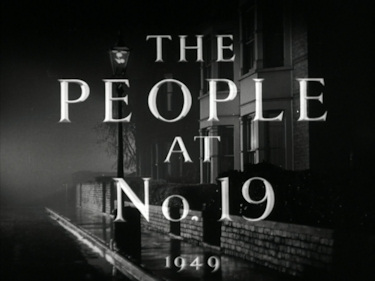 |
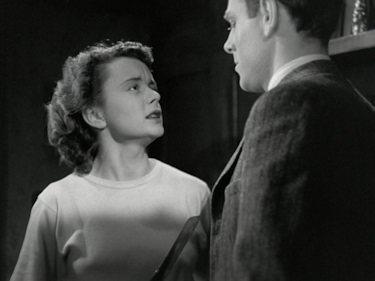 |
|
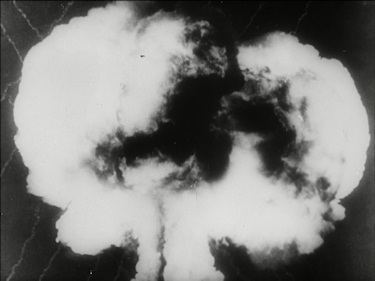 |
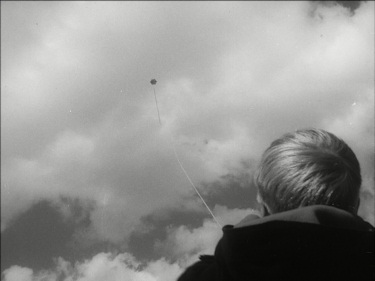 |
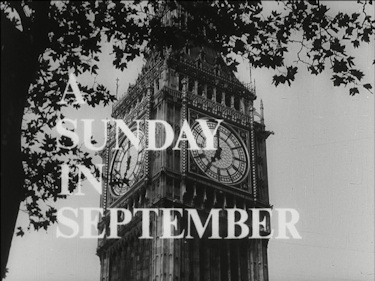 |
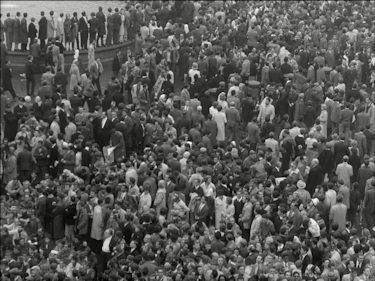 |
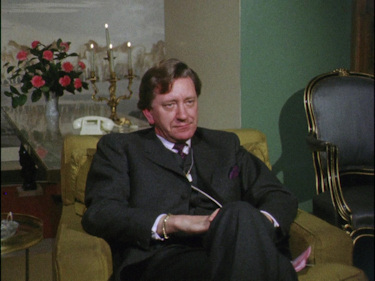 |
Bottom line:
While so far the BFI's Flipside
series has been nothing short of a
revelation, this ranks as my least
favorite in the series. The film was
fun enough for the first half, but
the focus on syphilis in the second
half felt artificial and tacked on
to support the rigid sexual morality
that was frequently cited: No
premarital sex is safe. Regardless
of how I felt about the film itself,
I must admit that this is a very
impressive package from the BFI and
well worth the purchase for those
interested.
Brian Montgomery
January 24th, 2010
![]()
![]()

![]()
![]()
![]()
![]()

![]()
![]()
![]()
![]()

![]()
![]()
![]()
![]()

![]()
![]()